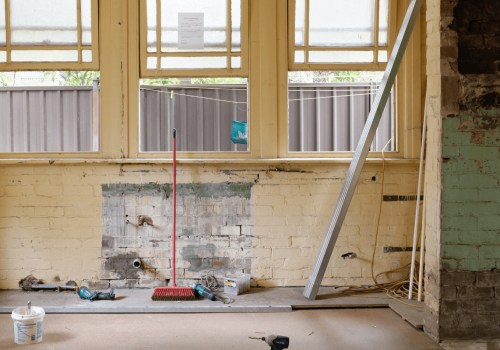Changing properties is a widespread practice throughout the real estate industry. As long as it is done correctly, the change of ownership is completely legal. In fact, a person can earn a decent and legal living through the practice of changing property. Before the recent mortgage crisis, investing in properties was a common way to make money in the real estate business.
You would buy a house, fix it, and then sell it for more than you paid for it. The largest regulation that applies to reversed housing comes from the Federal Housing Administration. The FHA, which insures the vast majority of mortgages in the United States, imposes regulations on transactions that would be considered drafts. The transaction requires FHA borrowers to wait a minimum of 90 days after purchase before selling a home.
If the home is resold 91-180 days after purchase, additional documents and approvals are required to ensure that the transaction is legitimate. While this regulation applies only to buyers and sellers using an FHA-backed mortgage, again this is the majority of homes and significantly reduces the potential pool of buyers in a home that could be invested. The primary reason for this is to avoid mortgage fraud, which is the secondary point of care discussed below. A New York City real estate fraud defense attorney can represent clients accused of fraudulent change or participation in property change fraud.
A property exchange fraud lawyer can provide you with legal advice if you are charged with a crime related to the illegal investment of a property. The Federal Housing Administration supports loans and makes it possible to obtain loans with low down payments. If someone asks you to participate in an illegal property change plan, or if you know of one that is already in place, we encourage you to contact your local FBI office. Because there is often a fine line between a legal and an illegal change, your defense attorney can often make a convincing argument that you did not break the law.
The change of ownership is legal, but it can cross the line and turn into fraud when false statements are made regarding the condition and value of the property. Changing ownership is a common practice in the real estate industry and involves buying a property and then turning it around and reselling it for a larger sum of money, often after making some improvements. While moving houses has earned a bad reputation in recent years due to a few bad apples, it's still a great way to get into real estate investment if you know what to watch out for. The bottom line is that if fraud is involved in any way with the “investment” of property, the conduct is illegal and can be punished as a crime.
If done correctly, moving a home is legal, moral and ethical, and is a great way to invest in real estate without tenants, rehabilitation, or risk. While the FHA does not normally fund short-term home changes, the agency relaxed its rules to try to help stimulate repairs and sales in neighborhoods that had been hit hard by the foreclosure crisis. While the industry took a big hit after its role in the great recession, the fins are back in full force and transactions are increasing across the country. However, if Bob enlisted the help of an appraiser or mortgage broker to provide a fraudulent appraisal or fraudulent loan documents in order to justify the inflated sale price, he has committed the illegal form of change of ownership.



